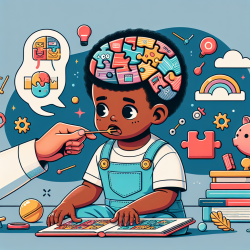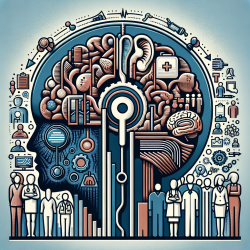As a practitioner committed to improving outcomes for children through online therapy, it is crucial to stay informed about the latest research and advancements in digital healthcare. The article "Online psychotherapy: trailblazing digital healthcare" by McDonald, Eccles, Fallahkhair, and Critchley provides valuable insights that can help enhance your skills and effectiveness in delivering online therapy.
Key Findings and Their Implementation
The research highlights several advantages and challenges associated with online psychotherapy. Here are some key takeaways and how you can implement them in your practice:
- Accessibility: Online therapy can significantly increase access to mental health services, especially for children in remote or underserved areas. Ensure that your online platform is user-friendly and accessible to all children, including those with disabilities.
- Cost-Effectiveness: The lower cost of online therapy can make it a viable option for schools with limited budgets. Consider offering tiered pricing or sliding scale fees to accommodate different financial situations.
- Engagement: One of the challenges noted is the high attrition rate in online therapy programs. To improve engagement, incorporate interactive and gamified elements into your therapy sessions. Programs like SPARX and Celeste have successfully used gaming frameworks to keep young users engaged.
- Personalization: The next generation of online therapy will involve more personalized and adaptive responses. Start integrating personalized feedback based on each child's progress and behavior to make the therapy more relevant and effective.
Encouraging Further Research
While the current research provides a solid foundation, there is always room for further exploration. Here are some areas where additional research could be beneficial:
- Long-Term Efficacy: More studies are needed to understand the long-term impact of online therapy on children's mental health.
- Specific Populations: Research focusing on specific populations, such as children with autism or ADHD, can help tailor online therapy programs to meet their unique needs.
- Technological Innovations: Investigate how emerging technologies like virtual reality and artificial intelligence can be integrated into online therapy to enhance its effectiveness.
To read the original research paper, please follow this link: Online psychotherapy: trailblazing digital healthcare.










